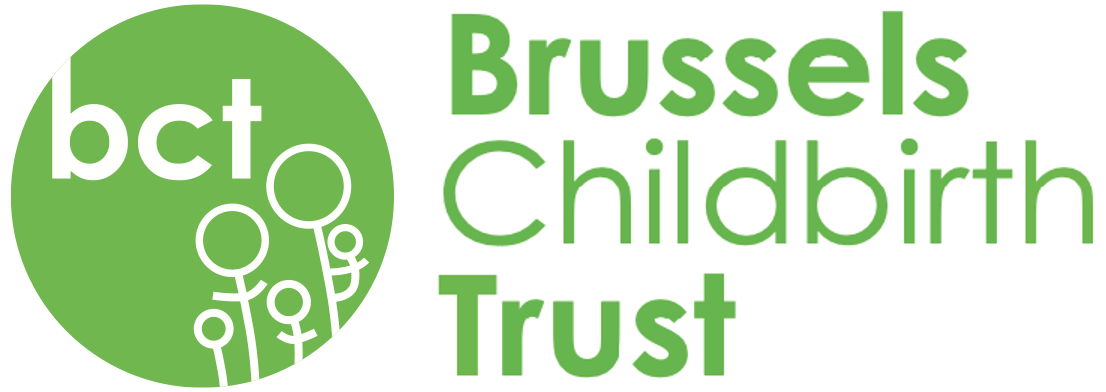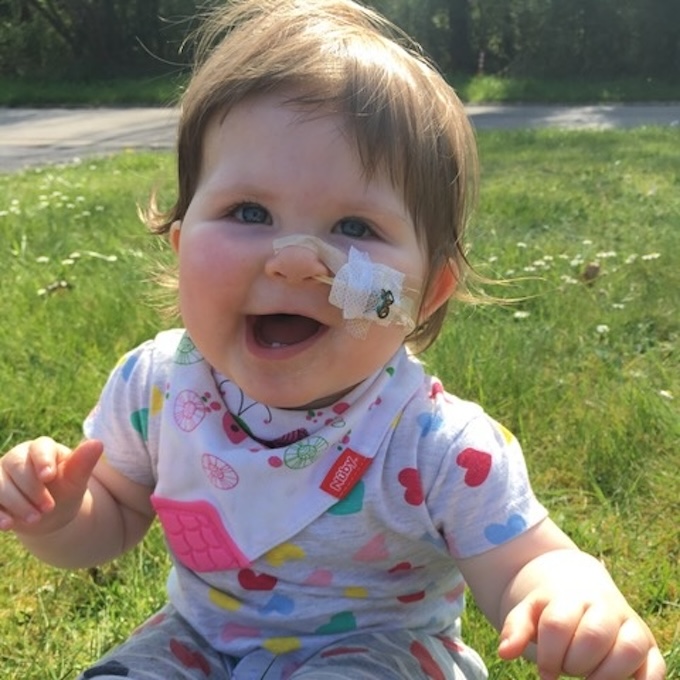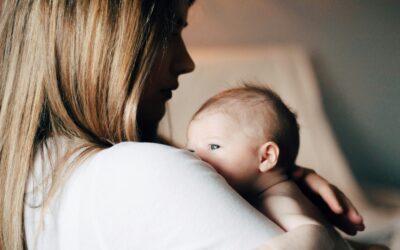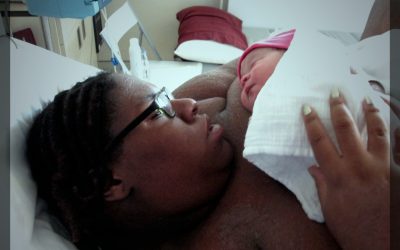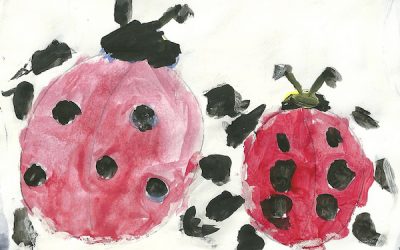Let’s talk about the hard parts
Abbi Vyncke’s daughter Chloe was born prematurely, a story she shared with us in the BCT’s Small Talk magazine (A different Start on the BCT blog). Last year, Abbi shared a more detailed account of the story on a page for parents of premature babies. The story of her late preterm birth and what comes after is a truly difficult read.
In the article, she writes: “People all too often only consider premature as being a problem if the baby is born months too early. And the number of times I was told that Chloe wasn’t premature because she was born at 36 weeks was to say the least, frustrating. I want other parents to know that early is early, and every stage of early comes with its own challenges. Partly for parents themselves to understand, but also to allow for a little more compassion and understanding in the parenting community.”
“Whatever you go through as a mum, and whatever your baby goes through,
if you both survive it, all can be healed and forgiven.”
So we asked Abbi to talk about this aspect of her experience, the frustration and the help she got. Because it was hard and frustrating but they did make it through: “After learning the principles of Infant Mental Health through the incredible team in the psychiatric unit, we have built every broken and burned bridge and we have even discovered new ones. Whatever you go through as a mum, and whatever your baby goes through, if you both survive it, all can be healed and forgiven.”
Mother does know best
Something I know with full certainty is that every parent wants the absolute best for their baby. And every parent (notwithstanding addictions and disorders) does everything they can to raise their baby the best way they know how. It is common knowledge that ‘fed is best’ and although breastfeeding is the choice for some, bottle is a perfectly good option. It would be shocking and abhorrent for a breastfeeding mother to be openly negative to a mother giving a bottle. And yet, when I had to feed my baby thickened milk with a spoon at 6 months old, more than one mother felt it her right and her duty to openly shame me. I received comments like, ‘why would you do that to her?’ and ‘why wouldn’t you even try to breastfeed, it’s so easy’.
Please, please. Think twice and then once more before you comment on something that is new to you because you don’t know what the person you are judging goes through.
These comments broke me at the time. Back then it took every part of me to muster up the courage and strength to take my sick daughter and her big sister to a music lesson or an open gym session. My daughter was so young when her little sister was born and kept in hospital, so much of my time was spent in neonatal, and all the classes I had signed her up to had to fall away. I had to prioritise hospital time. When she came home, despite not yet being fully healthy, I wanted to bring some normality back into our lives and attend a class or two. This came with preparation and a lot of hardware!
Feeding does not come easy
We started our baby on bottle feeds but she couldn’t swallow well, so instead of being able to feed her ‘normally’ I had to hold her with her back to me, and a muslin under her mouth so that everything she didn’t swallow, would be soaked up by the muslin. I had to weigh the muslin before and after a feed so I knew how much she dribbled, how much was left in the bottle, and that was how much she drank. Every feed had to be calculated and written down, and I had to take her to Kind en Gezin every second day to get her officially weighed.
When she kept losing weight, we had to try something else which is when we started to thicken the milk and spoon feed her. Again, I had to carry a scale around and weigh every pot before and after the feed. We tried to use the same pots for consistency, but with multiple feeds a day, we ran out and I just used what we had. I made a list of the weights of all the pots, with and without lids so I could calculate what she ate more easily.
When she continued to lose weight, the hospital had to put in a naso-gastric feeding tube. Then she ate what we gave her, it went straight into her stomach. No more weighing, but we would always have to make sure the tube was still in her stomach and hadn’t shifted to her lungs before pumping the milk in. This came with a different set of hardware, namely a stethoscope and three different syringes to test the tube, flush it out, then feed her.
Parenting is hard – Comments make it harder
Different insulting comments, stares and looks came with each feeding technique. I will never understand why the parenting community lacked compassion and understanding for a mother who was so clearly struggling, not only to feed my baby but also, just to leave the house. Of course – we all have our problems: parenting is so hard. Being a new mum is the biggest challenge I have ever faced and I know I am not alone. I’m sure every negative comment I received came from a mother who was having her own difficulties, but does that excuse it?
What do we do then? Crudely put, how can we be nicer to each other? I believe the answer is simple, we first have to be nicer to ourselves. We only negatively judge others when we are struggling with what we believe are our own shortcomings? After one such experience of receiving a negative comment, I was so upset I went to a corner of the music class and cried. When a friend saw me, she told me that after I walked away, the mum told her that she was really keen to start feeding her child solids and was failing tremendously. She struggled to see a baby so much younger than her own achieving something she wanted for her own child. She had no idea why I was feeding a six-month-old baby solids, but all she could do was insult me. Correct approach: no, absolutely not. Understandable: maybe. Changeable: yes!
It is normal to struggle – and there is help
Parenting difficulties are not reserved only for the parents of babies who started their lives in neonatal. Trauma is not solely reserved to those spending time in an incubator. We are all susceptible to the difficulties that come with raising the next generation. It is normal to struggle in the beginning, and it is normal to struggle years later. Just in case you are skim reading, I’ll say that again: parenting is hard, it is normal to struggle!
The Flemish government recently launched a campaign to support parents in their struggle (kindengezin.be > opvoedstress). It is possible to write it off and say that they oversimplify somewhat. They provide parents with a breathing technique: breath in for a count of four, hold for four, breath out for four. Let’s just take a minute, though, and see if there is something to it. What are the benefits of breathing (obvious comments aside)?
- It slows down your thoughts.
- It reduces the heart rate and the levels of stress hormones in your body.
- It increases feelings of calm and wellbeing.
- It brings you more in touch with the here and now.
And when is a good time to use this breathing technique? Whenever you feel that you are losing yourself, getting irritated, shouting more, reacting faster, getting annoyed about things that wouldn’t normally irritate you, feeling jealous, demanding more from your child, expecting the impossible from your child, feeling guilty, feeling lost, when you just want to cry. This list is endless, and you are not unique when you feel these things. I have personally felt every one of these things and all in one day, and I know I am not alone. When you feel any of these: breathe. When you lose connection to yourself in any way: breathe.
And when you are just not able to get a handle on it, your day, yourself: ask for help.
Asking for help
‘Loving reminder: caring for children asks good selfcare. Good selfcare isn’t possible without social support’. dr Binu Singh
Now I know we are all expats, which by definition means that we most likely have no family here. But we do have each other through the BCT. Join a group, go to a meetup, post on the Facebook group. Reach out to someone. BCT has many support groups and people happy to share their experience. We are here for each other, ask for help.
We all know these stressful situations: your baby may be a fussy eater, or may refuse a nap, maybe your baby cries a lot, or hates being left alone. Perhaps your toddler is getting a reputation for always doing naughty things, or your child just refuses to listen to you.
But why is it so important that we, the parents, are able to stay calm and look after ourselves? Simply put, our babies need this from us. They learn this from us starting from when we are growing them in our bellies. If we can’t stay calm and control ourselves, they can’t and won’t learn how to do it for themselves. And if they don’t learn from their parents, they may never learn.
Healing
No pressure though, and I mean that in the truest form, and here I revert back to my story. I was so lost when my baby was sick. I couldn’t be the mum I wanted to be, the mum I dreamed of being or planned to be. I lost myself. I lost the relationship I had started to build with my eldest and I lost the opportunity to build one with my youngest. My eldest didn’t trust me: when I told her I loved her, she would hit me and cry, she stopped napping at 9 months old. And at 18 months old, my youngest still couldn’t drink or eat and didn’t even respond to me when I called her by her name. We were broken and we healed. I’m not saying this to make you imagine that parenting comes easily to me now, it absolutely doesn’t. Every day brings new challenges, but my approach will consistently include the above mentioned and many other aspects of Infant Mental Health that I can talk about another time.
By Abbi Vyncke
